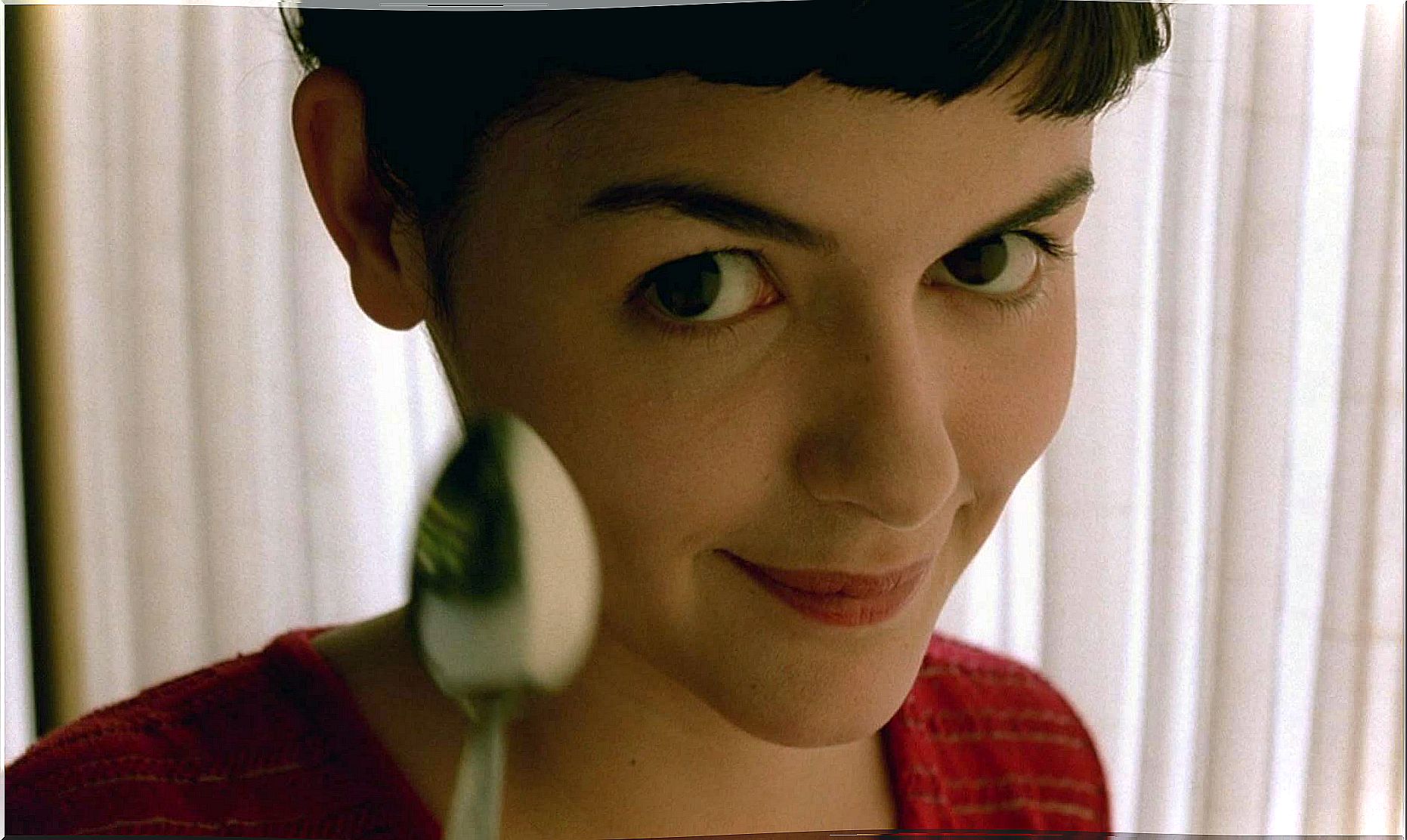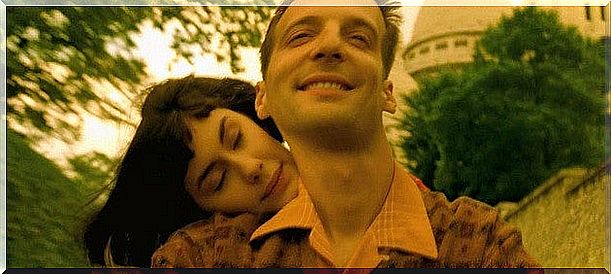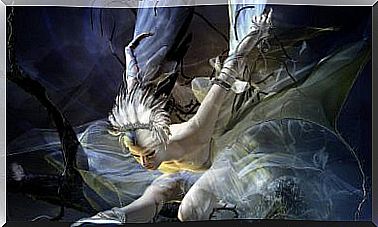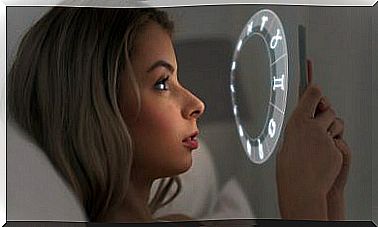Amélie: A Tale For Dreamers

Since its premiere in 2001, Amélie has risen as an icon of French cinema, as a myth of the French capital in which, every year, the film’s fans try to discover and tour the film’s settings.
Jean-Pierre Jeunet gave us a truly unusual romantic comedy, charming and with an unmistakable personality. Yann Tiersen’s soundtrack, the garden gnomes, the Saint-Martin canal, the café where Amélie works… Everything has been etched in our memory forever.
Amélie is that endearing and, at the same time, bizarre character who conquered us all at the beginning of the new millennium. A character who, as the promotional posters for the film pointed out, came to change our lives.
The beauty of his photography and his attention to detail manage to immerse us in a fable in which the everyday seems to become magical, in which the strange and the common merge happily. Above all this lies a somewhat peculiar but captivating love story. Creative and original, Amélie continues to be, for many, a reference.
A lonely childhood
As often happens in stories and in the most archetypal construction of the hero, Amélie is presented from the beginning, that is, from her childhood. In fact, although with comic overtones, we observe a rather dark past and a lonely childhood, just as it happens with heroes. Thus, Jeunet presents our heroine as the only daughter of a marriage that does not pay much attention to her.
Likewise, as in stories, we have an omniscient narrator, a voice- over who knows the lives of the characters in detail and invites us to discover them through their curiosities and peculiarities.
This narrator guides us through a lonely childhood of a girl who is forbidden to go to school and who will soon suffer the tragic loss of her mother . Faced with so much sadness, little Amélie decides to take refuge in a peculiar imaginary world.
This unmistakable presentation helps us understand the adult Amélie a little more. A young woman who, despite living in Paris and working as a waitress, maintains those traits that already characterized her in her childhood. Introverted and extraordinarily dreamy, Amélie’s life will change on the same day that a tragic accident overshadowed contemporary history: the death of Lady Di.
The news of this known fact is used from irony and intelligence to discover how Amélie, to her amazement, finds a small treasure locked up in her Montmartre apartment.
Amélie’s lonely life seems, at last, to have one goal: to help others altruistically. In her quest to find the owner of the metal box that has been hidden in her apartment for 40 years, Amélie will discover that the best way to her happiness is probably to improve the lives of those around her.
The presence of love
Amélie not only speaks of altruism, but also of love and, in this sense, we can observe different directions. One of the main doubts that assailed me before watching the film again was how it would have survived the passage of time. It should not be forgotten that, in recent years, there are certain stories that would no longer pass through the current filter.
Amélie , like many of the romantic comedies of the early 2000s, falls precisely in showing us an absolutely mythologized idea of romantic love. An idealization that, in reality, has been – and continues to be – very present in the cinema. In fact, we could affirm that the cinema has contributed enormously to creating an imaginary that has fed the fantasies of many.
The central appearance of love is found in the story of the protagonist with Nino, a young man she does not even know. The public hardly knows about him and will gradually discover the information, accompanying the protagonist in her love story. A totally mythologized story that responds, in part, to the idea we have of a “fairy tale”.
We could reproach Amélie for this irrational infatuation and we can even see in her a character that, if we analyze it in depth, is somewhat disturbing. However, we ignore these details and let ourselves be carried away by the magic of the fable.
After all, Amélie unfolds before us like a movie with a lot of charm and detail. In short, even if romantic love is mythologized, it is best to enjoy the film, forget the current context a bit and understand it for what it is: a fairy tale in a real setting.
However, there is a story that we could put on trial. We talk about the character of Joseph, a man obsessed with one of Amélie’s companions.
The character is characterized as a stalker and Amélie, in order to help her partner, decides to take revenge. But it is not a completely positive revenge, but decides to play match between Joseph and another of his companions. The problem is solved from the comic and, although times have changed, the film is perfectly enjoyable.
In addition to these stories in which love makes an appearance, it should be noted that Amélie herself will end up realizing that there is no love more important than her own. In this sense, the protagonist becomes aware that her desire to help others is meaningless if she does not decide to help herself; and that is probably the greatest act of love that we see in the film.

Amélie: a careful staging
In Amélie everything seems sweet, but the young woman will not hesitate to show her character when necessary. Behind that shy smile, hides a young woman who, in the face of injustice, will act vindictively and even childishly. Let’s not forget that Amélie is a true dreamer who seems to live in a constant imaginary tale, a young woman who has not abandoned her most childish side.
All this is reflected in its staging, as we pointed out in the first lines, the soundtrack is key to drawing all this fantasy. It is as if we perceive the scenarios from the eyes of the protagonist; Despite being in the real world, in a city known as Paris, we do not stop having the feeling of being in front of something magical, imaginary.
The use of color, the decorations and even the characters’ clothing reveal details of this entire framework. We know the personality of each one of them thanks to their homes, their clothes, their mimicry… The photography is absolutely cared for and gives us truly beautiful images.
In this way, the film reveals itself to us as an atypical romantic comedy, in which its protagonist lives out his fantasy and works from the shadows to help others. The setting is key to understanding this entire world dreamed of by Amélie and the voice- over will appear at key moments to “read” us some peculiarities of the characters.
Absolutely creative and original, Amélie became a success with the public, becoming the second highest grossing French film, surpassed only by Untouchable (Nakache, 2011). Likewise, he won almost all the awards at the César Awards, obtained two BAFTAs and several Oscar nominations.
Without a doubt, it is the romantic comedy with fantasy overtones par excellence, the French film that everyone remembers. Amélie conquered us with her sweetness, but also with her revenge. Somehow, it fulfilled what the posters said and changed our lives, inviting us to see the world from another perspective.









